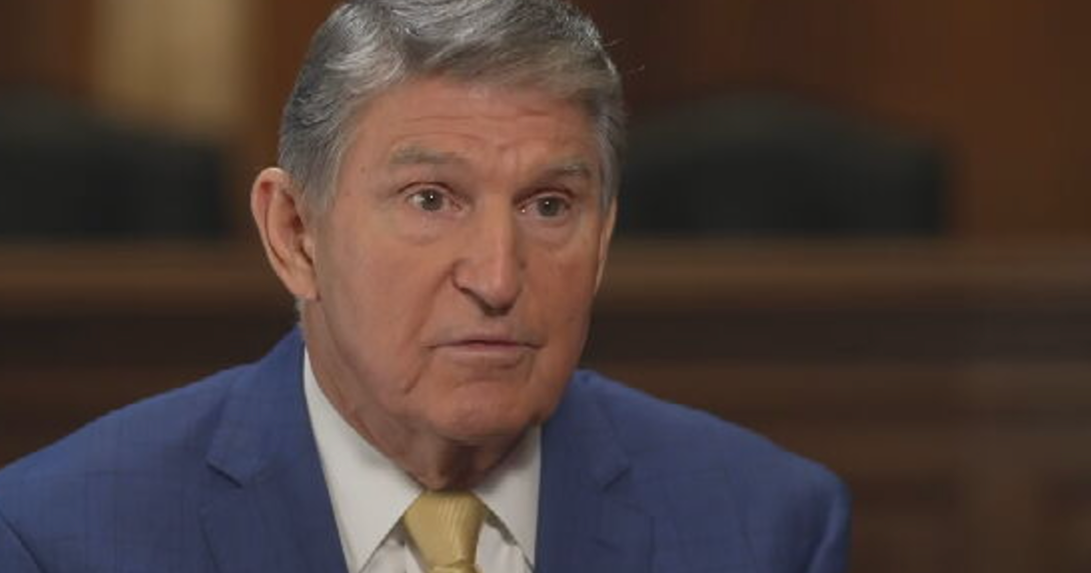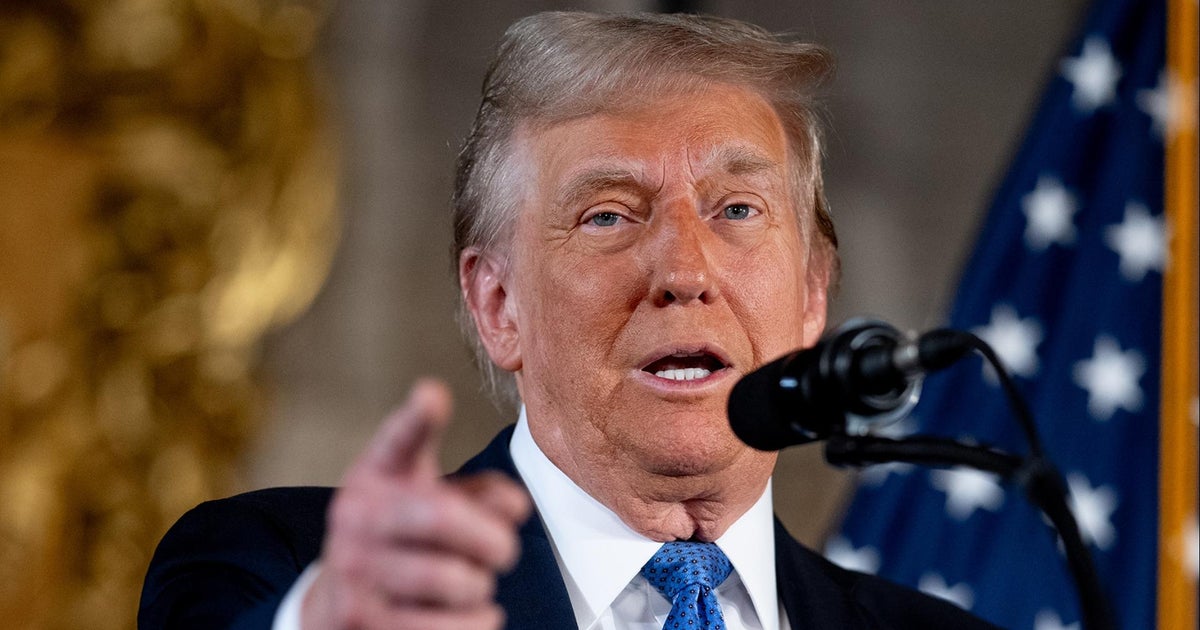What to know about the 3 witnesses testifying in public impeachment hearings this week
Washington — At the heart of the impeachment inquiry is whether President Trump withheld U.S. aid to Ukraine and a White House meeting in exchange for Ukraine announcing investigations that would help him politically. Democrats allege the president orchestrated an "extortion scheme."
The Democratic-controlled House launched an impeachment inquiry after a whistleblower filed a complaint about a July 25 phone call between Mr. Trump and Ukraine's president, Volodymyr Zelensky. But government officials had sounded similar alarms weeks before that.
In June, Mr. Trump told ABC News that he would listen — and not necessarily call the FBI, as instructed — if a foreign country had damaging information on his political rivals. He called it opposition research and disagreed that it would amount to election interference.
Those comments prompted the chair of the Federal Elections Commission to tweet a public reminder that "it is illegal to solicit, accept, or receive anything of value from a foreign national in connection with a U.S. election."
"Electoral intervention from foreign governments has been considered unacceptable since the beginnings of our nation," wrote FEC Chair Ellen Weintraub.
Fast forward to this week, when the public will hear from three of the 15 current or former White House officials who have testified behind closed doors. The transcripts of their testimonies were released last week. Here's what we learned from them (and how to watch this week's hearings):
Bill Taylor (Testifying on Wednesday)
Bill Taylor is the top U.S. diplomat in Kiev, and he has served under Republican and Democratic administrations. Taylor offers a firsthand account of "whether Trump handed off Ukrainian foreign policy and a chunk of the State Department to a private citizen, Rudy Giuliani, whose loyalty lies to Trump personally — not to the Constitution, the rule of law or the American people," says CBS News Legal Analyst Kimberly Wehle.
In his closed-door testimony in October, Taylor said that U.S. aid to Ukraine had been explicitly tied to Ukraine's willingness to investigate Mr. Trump's political rivals. He also spoke of an "irregular channel" of policymaking that included Rudy Giuliani, Mr. Trump's personal attorney; Rick Perry, the energy secretary; Gordon Sondland, U.S. ambassador to the European Union; and Kurt Volker, a former special envoy to Ukraine.
"Presidents can use personal advisers, of course," says Wehle, but she questions using them "to implement an agenda that goes against official policy constructed in America's interests."
According to Taylor, there was a concerted effort by this "irregular, informal channel of U.S. policymaking" to use leverage to get Ukraine to commit to opening investigations into unproven allegations of Ukrainian interference in the 2016 U.S. election, as well as into the Ukrainian gas company Burisma, which had hired Hunter Biden, the son of Mr. Trump's political rival, former Vice President Joe Biden.
Taylor also fills in some details on the timing of the hold on assistance to Ukraine. In his opening statement, Taylor said he heard an official from the White House Office of Management and Budget (OMB) say on July 18 that there had been a hold placed on hundreds of millions of dollars in military aid to Ukraine. The aid was targeted at help Ukraine fend off Russian aggression. The OMB official said the order to delay the aid came "from the President to the Chief of Staff to OMB," according to Taylor.
The reason for that hold, according to Taylor was that "[s]ecurity assistance money would not come until the president [of Ukraine] committed to pursue the investigation."
"'Investigations' was a term that Ambassadors [Kurt] Volker and [Gordon] Sondland used to mean matters related to the 2016 elections, and to investigations of Burisma and the Bidens," said Taylor.
When Taylor expressed concerns about this to Sondland and Volker, he said both defended the president.
"Ambassador Sondland tried to explain to me that President Trump is a businessman. When a businessman is about to sign a check to someone who owes him something, he said, the businessman asks that person to pay up before signing the check," Taylor recalled. "I argued to both that the explanation made no sense: The Ukrainians did not 'owe' President Trump anything, and holding up security assistance for domestic political gain was 'crazy.'"
Taylor's testimony, however, suggested that it's possible Sondland had reservations about the call. According to Taylor, Sondland "requested that the call [with Zelensky] not be transcribed."
Sondland and Volker also testified behind closed doors.
In a major reversal, Sondland revised his testimony last week. He said reading the other witnesses' transcripts "refreshed my recollection about conversations involving the suspension of U.S. aid."
Sondland's latest version of his testimony puts on record that he remembers telling a top Ukrainian official that the release of delayed military aid was "likely" dependent on the country announcing investigations that would benefit Mr. Trump politically.
George Kent (Testifying on Wednesday)
George Kent is the deputy assistant secretary of state for European and Eurasian Affairs. His testimony helps to support Taylor's more-detailed account. Like Taylor, he's a firsthand witness to Giuliani's role in foreign policy, Wehle notes.
On August 16, Kent issued a memo about "his concerns that there was an effort to initiate politically motivated prosecutions that were injurious to the rule of law, both in Ukraine and the U.S." He believed the prosecutions "were the ones that Rudy Giuliani [Mr. Trump's personal attorney] had been tweeting about, meaning Biden, Burisma and 2016."
Kent testified that, according to Sondland, Mr. Trump "wanted nothing less than President Zelensky to go to [a] microphone and say 'investigations, Biden and Clinton.'"
Mr. Trump has claimed that the White House was seeking to root out corruption in Ukraine — not seek political gain. Wehle suggested Kent's testimony may be able to help verify the accuracy of that claim.
While Republicans argue that quid pro quo agreements are a standard part of diplomacy, Kent condemned the notion of asking a foreign entity to investigate someone for political gain.
On August 15, he said Catherine Croft, then a special adviser on Ukraine, asked him, "Have we ever asked the Ukrainians to investigate anybody?" He responded by noting the two avenues for investigating crimes — but cautioned, "If you're asking me, 'Have we ever gone to the Ukrainians and asked them to investigate or prosecute individuals for political reasons,' the answer is, I hope we haven't, and we shouldn't because that goes against everything that we are trying to promote in post-Soviet states for the last 28 years, which is the promotion of the rule of law."
Marie "Masha" Yovanovitch (Testifying on Friday)
Yovanovitch was a U.S. ambassador to Ukraine. She said Giuliani worked to have her removed from her post because he believed she was standing in the way of investigations into 2016 election interference and the Bidens.
She was one of many officials who testified that foreign policymaking was happening through an "irregular" backchannel led by Giuliani and Trump, who have both expressed desire for Ukraine, and other countries, to investigate things that could benefit the president as he runs for reelection.






